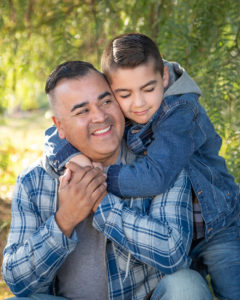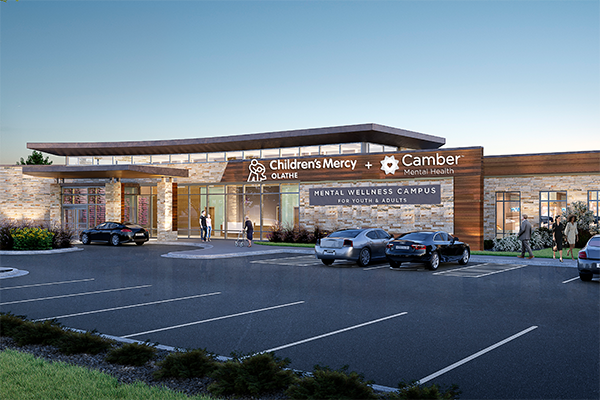- Locations
- How We Help
Overview
As the regional leader in youth mental health treatment, our innovative services help youth achieve health and wellness.
Treatment Programs
- Admissions
Overview
Learn how to admit your child to a Camber treatment location or make a client referral.
- Youth Disorders
- Resources
Overview
Our free resources help you stay informed and educated about mental health, brain development, and childhood trauma as well as how Camber is working toward building healthier communities.
- About Us
Overview
Our philosophy is to provide collaborative, compassionate and effective care through the use of timely, individualized treatment planning.
Learn More About Us
Aggression
 We all experience anger from time-to-time. Things happen in life that upset us, and it’s OK to feel those emotions. Just like adults, children feel anger and are still in developmental stages where they’re learning what a healthy response to those feelings looks like. Many young children may respond with tantrums or outbursts—but most children outgrow these behaviors between ages seven to nine.
We all experience anger from time-to-time. Things happen in life that upset us, and it’s OK to feel those emotions. Just like adults, children feel anger and are still in developmental stages where they’re learning what a healthy response to those feelings looks like. Many young children may respond with tantrums or outbursts—but most children outgrow these behaviors between ages seven to nine.
If a child is having tantrums in their adolescent years or beyond, that’s a sign of unhealthy or unfinished development. It is very normal for someone to experience anger and irritability during their adolescent and teen years because their hormones, brains and bodies are undergoing many changes. But when this anger becomes extreme and turns into verbal or physical aggression, they may need professional help to learn how to regulate their emotions.
For most children struggling with anger or outbursts, there is often another underlying mental health condition. Genetics, environmental factors, substance use, and childhood trauma are additional elements that may play a role in a child’s development and potential for aggressive behavior.

Signs and Symptoms
Below is a list of behaviors that may indicate a child or teen’s aggression is unhealthy and potentially jeopardizing their safety or the safety of others.
- Talking, writing or drawing about violence, death, or hurting themself or someone else
- Frequently getting into verbal or physical fights
- Damaging or vandalizing property
- Using alcohol or drugs
- Talking about or carrying around objects that could be used as a weapon (i.e., firearms, knives, other sharp objects, poisons, etc.)
- Showing aggression by hurting animals, other people, or themself
- Making verbal threats
- Intense anger and outbursts almost every day
- Displaying risk-taking behaviors (i.e., drinking alcohol or doing drugs, sexually acting out, excessive speeding, etc.)
- Frequently listening to music about violence, playing violent video games, or watching shows or movies with a lot of violence
- Membership in a gang or wanting to become part of one
- Withdrawing from family, friends or activities they once enjoyed
- Poor school performance or attendance
- Issues with relationships with friends and family
- Fixating on something that made them angry for extended periods of time
What You Can Do to Help
If you know a child who is struggling with aggression, here are some ways you can support them:
- If the child expresses thoughts of self-harm, suicide, or violence against another person, call 911 immediately. Take these statements very seriously and get them professional help as soon as possible.
- Remain calm and patient in front of them. Children are often observing how the adults around them react in new, uncertain or stressful situations.
- Remain clear and consistent when giving directions, rules or other guidance. Follow through with appropriate consequences when these rules are not followed.
- Give praise or rewards when rules or directions are followed well. Children struggling with aggressive behaviors often receive and expect criticism. Look for good behavior to recognize and praise.
- Ask the child how they would feel if someone was verbally or physically aggressive with them. If they push a child down on the playground, reframe the situation to make them think about how they would feel if they were pushed down.
- Encourage the use of coping skills that will help the child regulate their emotions (i.e., deep breathing, meditation, exercise, listening to music, etc.).
- Join a training for parents/caregivers to learn skills for managing difficult behaviors in children.
- Speak to their teachers and school counselors to ensure they know that the child may need additional supervision and support at school.
- Be observant of their behaviors and help them keep track of when feelings of anger and irritability occur. Tracking this over time can help identify triggers, what treatment approaches are most effective or any additional concerns.
![]()
Camber Children’s Mental Health Can Help
Camber is a network of nonprofit children’s mental health hospitals and residential treatment centers serving youth ages 6 to 18. Each year, we give thousands of youth a safe place to heal, build resilience, and overcome struggles with mental health conditions. Our compassionate team of psychiatric, medical and behavioral health professionals provides a nurturing and therapeutic experience along with a treatment plan tailored to meet each child’s individual needs. The goal of our treatment programs is for each child to safely return home with the resources and supports in place to live a healthy and happy life in their community.
If you’re concerned that a child in your care is struggling with aggression or other mental health needs, call Camber at 913-890-7468. We’re available 24/7 to answer your questions.
Here are some Camber resources to help you understand and address aggression:
- Check out mindfulness and how it can prevent impulsive, reactive responses [VIDEO]
- Make an emotion regulation plan to identify triggers and helpful coping skills for when emotions become overwhelming
- Have fun and be active! Follow along with these simple exercises [VIDEO]
- Understand how the brain develops and how stress can affect healthy growth
- Use these easy deep breathing techniques when feeling overwhelmed [VIDEO]
Here’s a list of additional resources you can contact for help:
- Call the child’s primary care physician or your local community mental health center
- Text HOME to 741741 for 24/7 support from the Crisis Text Line
- Call the National Alliance on Mental Illness helpline at 800-950-6264 or visit their website at nami.org
- Call the 988 Suicide and Crisis Lifeline at 988 or 988lifeline.org
Share this information with your support system! View and download this information as a PDF.




